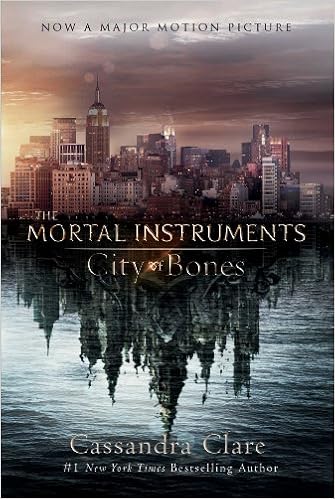Editorial
The editor’s
job in a television and film industry is to assemble a variety of different
shots in a coherent sequence. The job of the editor is also to edit the
dialogue, making sure that continuity is shown throughout. Some of the qualifications that people must
have when becoming an editor of a movie or television show are, communication
and media studies, fine art/visual art, graphic design, and information
technology. You'll need to be proficient in using specific editing software
packages, such as Avid or Final Cut Pro. An example of a famous editor is Peter
Honess who was the editor for the very famous movie franchise Fast and Furious.
Management
 A
production manager is when someone is involved with the all the planning,
coordination and control of manufacturing processes. They also make sure that goods
and services are produced correctly and that the correct amount is produced at
the correct cost and level of quality. Some of the skills that are needed to fulfil
the role of a production manager is planning and organising different
production schedules, assessing projects and the resource requirements,
estimating, and agreeing budgets, making sure that the health and safety
regulations are met correctly and efficiently. An example of a production
manager is Daniel Hank who is the production manager for the television series
Shadowhunters.
A
production manager is when someone is involved with the all the planning,
coordination and control of manufacturing processes. They also make sure that goods
and services are produced correctly and that the correct amount is produced at
the correct cost and level of quality. Some of the skills that are needed to fulfil
the role of a production manager is planning and organising different
production schedules, assessing projects and the resource requirements,
estimating, and agreeing budgets, making sure that the health and safety
regulations are met correctly and efficiently. An example of a production
manager is Daniel Hank who is the production manager for the television series
Shadowhunters.Technical
 Technical manager’s jobs are
to support and lead the technical team in a corporate environment. There are a
variety of different things that technicians for example technicians can be
from sounds technicians, to lighting and digital therefore they are in charge
of all the technology that they need when making a film or television show. The
skills that will be required when applying for a job to be a technician is to
have the ability to find and fix problems, the ability to explain technical
problems in everyday English, also to have excellent customer service skills
and organisational skills. An example of a technician in the film industry is
Aaron Picot from the television series Sweet Vicious.
Technical manager’s jobs are
to support and lead the technical team in a corporate environment. There are a
variety of different things that technicians for example technicians can be
from sounds technicians, to lighting and digital therefore they are in charge
of all the technology that they need when making a film or television show. The
skills that will be required when applying for a job to be a technician is to
have the ability to find and fix problems, the ability to explain technical
problems in everyday English, also to have excellent customer service skills
and organisational skills. An example of a technician in the film industry is
Aaron Picot from the television series Sweet Vicious.
An
audio technician job roles can be split into two categories which are
production when they record all sound on set or on location and there is post-production
when they work after the filming and do things like balancing, mixing, editing
and enhancing of pre-recorded audio. The skills that are needed to fulfil the
role of an audio technician is to have good aural skills, great attention to
detail, general technical ability and agility, also to have the ability to work
as part of a team of people and also have problem solving capabilities if any
problems were to occur which is very likely on a production set. An example of
an audio technician is Tim Gomillion from the movie The Maze Runner.
 A
costume designer is the person that is charge of wardrobe, making and hiring
costumes for everyone on a stage or screen production and also managing other
staff like costume makers, wardrobe supervisors and wardrobe assistants. The skills
needed to fulfil the role of a costume designer is to have excellent design
skills, works very good a leader of a group of people, to have organisational
skills, to be aware of costs and budgeting when buying materials and clothes, the
ability to work under pressure and meet deadlines when needed and also to have
good research skills on what costume you are creating depending on things such
as era, personality, location etc. An example of a costume designer is Nancy Ceo who works on the television series The Originals.
A
costume designer is the person that is charge of wardrobe, making and hiring
costumes for everyone on a stage or screen production and also managing other
staff like costume makers, wardrobe supervisors and wardrobe assistants. The skills
needed to fulfil the role of a costume designer is to have excellent design
skills, works very good a leader of a group of people, to have organisational
skills, to be aware of costs and budgeting when buying materials and clothes, the
ability to work under pressure and meet deadlines when needed and also to have
good research skills on what costume you are creating depending on things such
as era, personality, location etc. An example of a costume designer is Nancy Ceo who works on the television series The Originals.
Creative
 A
scriptwriter is a writer who practices the skill of screenwriting, writing
screenplays for different media productions such as films, television programs,
comics or video games. To fulfil the role of a screenwriter the skills that
people will need is to have impeccable writing abilities, creativity and
imagination, incredible storytelling skills and an understanding of dramatic
structure also having a willingness to accept criticism and rejection for their
work and ideas, and also having very good presentation skills so that you are able to explain your idea in full detail so that no one is left confused about anything and all questions have been answered. An example of scriptwriter is Elysse Applebaum for the
television show The 100.
A
scriptwriter is a writer who practices the skill of screenwriting, writing
screenplays for different media productions such as films, television programs,
comics or video games. To fulfil the role of a screenwriter the skills that
people will need is to have impeccable writing abilities, creativity and
imagination, incredible storytelling skills and an understanding of dramatic
structure also having a willingness to accept criticism and rejection for their
work and ideas, and also having very good presentation skills so that you are able to explain your idea in full detail so that no one is left confused about anything and all questions have been answered. An example of scriptwriter is Elysse Applebaum for the
television show The 100.
A director is someone who supervises the actors/actresses and the technical crew when creating a film or television show. To fulfil this
role to get the best outcome of a production then a director would need to have
incredible artistic vision and creative skills, to have complete commitment, to
have a deep passion for film making otherwise it might not have best outcome, to
be a strong and confident leader of a team, to make decisions difficult or easy
and to delegate and collaborate with others in a work environment. An example
of a director is Harold Zwart who directed the movie The Mortal Instruments
City of Bones.
 A
graphic designer is some who works on a production set who creates visual
concepts, using computer software or this can be done by hand, and to also communicate
ideas that motivate, inform, and captivate consumers. Some of the skills that
are needed to fulfil the role of a graphic designer are to have visual Ideation
and creativity, to design software for instance photoshop, Illustrator,
InDesign etc. And also to have great web design capabilities. An example of a
graphic designer is Leslie Wah who works on the television series Teen Wolf.
A
graphic designer is some who works on a production set who creates visual
concepts, using computer software or this can be done by hand, and to also communicate
ideas that motivate, inform, and captivate consumers. Some of the skills that
are needed to fulfil the role of a graphic designer are to have visual Ideation
and creativity, to design software for instance photoshop, Illustrator,
InDesign etc. And also to have great web design capabilities. An example of a
graphic designer is Leslie Wah who works on the television series Teen Wolf. 

